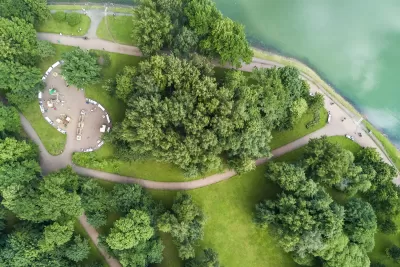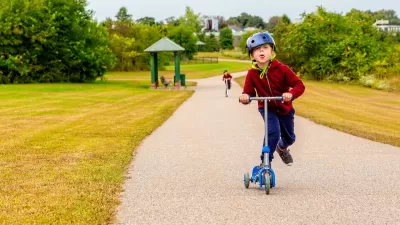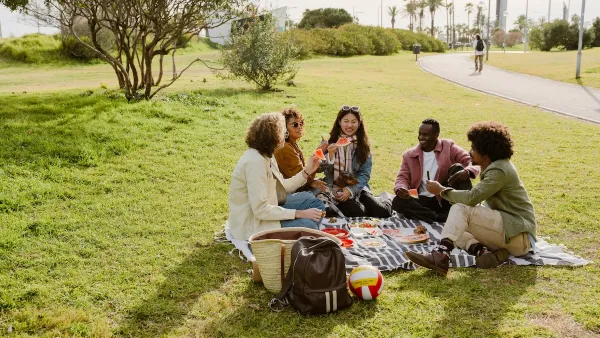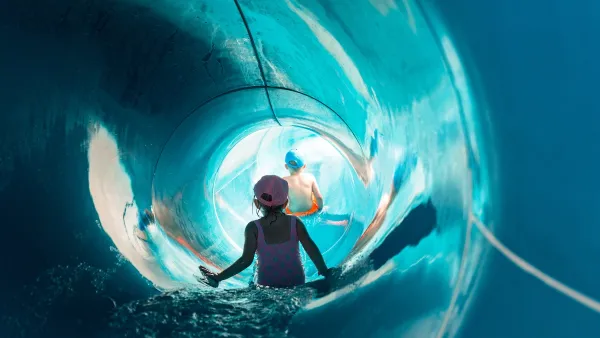Learn about the top trends impacting parks and recreation, including the use of mobile phone data to track park usage, impacts of climate change, rise of pickleball, a four-day work week, and more.

To plan for and meet the growing and diverse needs of communities, it is important to be aware of the latest trends. Within the field of parks and recreation, the National Recreation and Park Association (NRPA)'s Parks & Recreation magazine is the source that many turn to for up-to-date information. In this article, Richard J. Dolesh, NRPA’s retired Vice President of Strategic Initiatives and Editor at Large for Parks & Recreation magazine, tells readers about the trends that park and recreation professionals should pay attention to. Highlights include:
Technology
- Rise of artificial intelligence to perform tasks such as responding to the public, preparing speeches, summarizing meetings, preparing reports, counting visitors, monitoring building systems, planning new parks, etc.
- Use of mobile phone data to track and understand park usage.
Climate change
- The growing role of parks to address or mitigate the impacts of climate change, including mitigating urban heat-island effects, preventing destructive effects of stormwater and flooding, improving air quality in cities and densely populated urban areas, and enhancing community health, livability, and sustainability.
Workplace changes
- The idea of the four-day work week is gaining in popularity.
- While the COVID-19 pandemic may have led employers to allow and even encourage fully remote work, many are requiring staff to return to the office.
Recreation preferences
- Although the pandemic caused many people to spend more time in parks and walk outside, walking trips have actually declined nationwide.
- The rise of pickleball continues, with demand for new courts and the conversion of underutilized tennis courts is increasing.
- The need for facilities for cricket is growing, aided in part by the launch of Major League Cricket, a professional league that began play in July 2023.
For more information, please read the source article.
FULL STORY: Top Trends in Parks and Recreation for 2024

Maui's Vacation Rental Debate Turns Ugly
Verbal attacks, misinformation campaigns and fistfights plague a high-stakes debate to convert thousands of vacation rentals into long-term housing.

Planetizen Federal Action Tracker
A weekly monitor of how Trump’s orders and actions are impacting planners and planning in America.

San Francisco Suspends Traffic Calming Amidst Record Deaths
Citing “a challenging fiscal landscape,” the city will cease the program on the heels of 42 traffic deaths, including 24 pedestrians.

Defunct Pittsburgh Power Plant to Become Residential Tower
A decommissioned steam heat plant will be redeveloped into almost 100 affordable housing units.

Trump Prompts Restructuring of Transportation Research Board in “Unprecedented Overreach”
The TRB has eliminated more than half of its committees including those focused on climate, equity, and cities.

Amtrak Rolls Out New Orleans to Alabama “Mardi Gras” Train
The new service will operate morning and evening departures between Mobile and New Orleans.
Urban Design for Planners 1: Software Tools
This six-course series explores essential urban design concepts using open source software and equips planners with the tools they need to participate fully in the urban design process.
Planning for Universal Design
Learn the tools for implementing Universal Design in planning regulations.
Heyer Gruel & Associates PA
JM Goldson LLC
Custer County Colorado
City of Camden Redevelopment Agency
City of Astoria
Transportation Research & Education Center (TREC) at Portland State University
Jefferson Parish Government
Camden Redevelopment Agency
City of Claremont





























